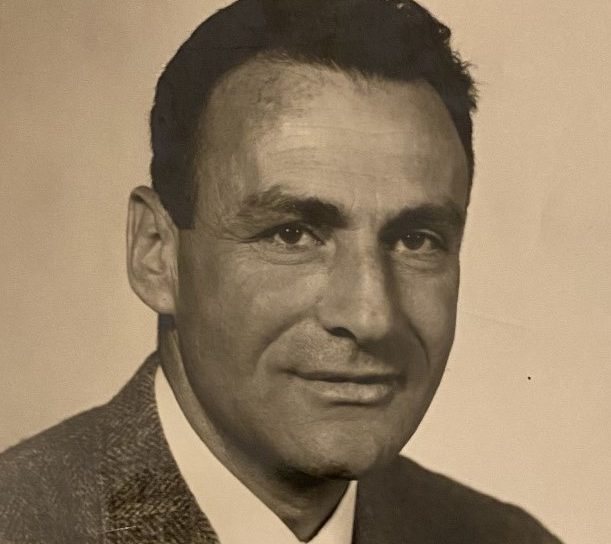Hans Wolpe’s life was the stuff of a Hollywood movie—German Jew in hiding during the Second World War, Holocaust survivor, soldier, new Canadian and university professor.
His life and accomplishments will be recognized by the Winnipeg Jewish community this week during its annual Kristallnacht commemoration.
Wolpe, who went into hiding when the Nazis invaded Belgium in 1940, managed to escape being sent to a concentration camp. The rest of his family were not as fortunate; they were all rounded up and killed in Auschwitz.
He moved around Europe using false papers, all the while hiding his true identity. In 1944 he ended up in Calais, France, where he was hired as an interpreter by the Nazis to help them build their defenses around the city.
After the Allies invaded Europe, Canadian forces besieged Calais in September, 1944. When the Nazis allowed civilians to evacuate the city, Wolpe left, too. When he encountered soldiers from the Royal Winnipeg Rifles, he offered to show them on a map the location of the Nazi defenses—and volunteered to fight with them.
They agreed; his language skills—he spoke several languages, including German and French—would be valuable. But they said he would not be paid or protected by the Geneva Conventions if captured.
Wolpe ended up fighting with the Winnipeg Rifles through France, Belgium and the Netherlands, where he was wounded. Evacuated to England for medical care, he caused headaches for the military since he wasn’t actually in the army or a Canadian citizen.
On hearing about his case, prime minister Mackenzie King was reported to have said: “If he’s not a Canadian, we’ll make him one.”
In fall 1945, Wolpe was allowed to formally join the Canadian Army and gain citizenship. The next year he was sponsored to come to Winnipeg. He began studies at the University of Manitoba, graduating with an honours BA degree in languages.
He went on to study at Harvard before becoming a professor in the United States. He married and had three children. After the break-up of his marriage, he tragically took his own life in 1963.
“When we think of the Holocaust, we often don’t think of people like Wolpe,” said Belle Jarniewski, executive director of the Jewish Heritage Centre of Western Canada. “But anyone who was Jewish and was living under Nazi occupation during the war is a survivor.”
What makes Wolpe’s story of interest to Jarniewski and the Heritage Centre is his Winnipeg connection, and how he took the fight to the Nazis. He reportedly killed 28 Nazi soldiers and captured many more during his service with the Rifles.
“Those stories of resistance are important,” Jarniewski said, noting they are less well-known today. “Many Jews fought back.”
Allan Wise is the volunteer director of the Royal Winnipeg Rifles Museum and Archives. For him, Wolpe’s story is a significant part of the regiment’s history.
“He fought alongside the regiment, he became a brother in arms,” he said. “His is a story of survival and hope, a true Canadian story of immigration and acceptance and finding a new home and life after having lost everything to the despair of war.”
From her home in New York City, Wolpe’s daughter, Lisa, said although she has few memories of her father—she was four when he died—“he is a constant presence in my thoughts.”
“He was a hero,” she said, adding his story “reminds me to have compassion and empathy for those who served in war.”
She is grateful to the Winnipeggers who sponsored him to come to Canada and to those who helped him start a new life in this country.
“He was all alone, there was no single surviving member of this family,” she said, adding he may have suffered from what we now know as PTSD.
On Nov. 10, the Heritage Centre will honour Wolpe at its annual Kristallnacht commemoration, in collaboration with the Royal Winnipeg Rifles Museum and Archives and the Jewish Federation of Winnipeg. The event will include the unveiling of a permanent exhibit about Wolpe and his life.
For more information, go to jewishwinnipeg.org/Kristallnacht.
